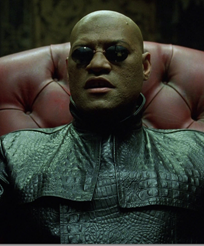The book is divided between two sections and a short epilogue. The much longer first part, “The History of Them All,” finds our nameless narrator ranting and reminiscing in a cabin somewhere in Montreal. He has lost his wife, a young Indian girl from an unidentified tribe named Edith, as well as his best friend/lover/mentor, F.
F. remains quite mysterious throughout the novel. A successful businessman, he’s also made a name for himself as political radical. He is obsessed with Quebec’s independence, to the point of anarchy; at times, he feels like a precursor to the Wheelchair Assassins in the warped Quebec of David Foster Wallace’s Infinite Jest. It becomes increasingly clear throughout the book that F. has become a paternal figure to our narrator and Edith, both of whom, it’s revealed later, are orphans.
And so it’s to F. that our narrator directs a significant portion of his desperate ravings: re-litigating old arguments, questioning inscrutable motives, replaying past handjobs (so many handjobs). The rest of the first section is dedicated to the narrator’s quixotic quest to have sex with a 17th-century Mohawk saint, Catherine Tekakwitha. How exactly our troubled narrator plans to bed this angelic ghost is never really addressed; suffice it to say, Tekakwitha is somewhat of a stand-in for Edith—an projection of his grief, a sublimation of his crude desire.
Fucking a saint is a fitting objective for Cohen’s protagonist. There is a tacit connection here and throughout between the secular sublime (achieved via sex) and the religious sublime (achieved via asceticism), the tense merger of which ramps up the novel’s underlying iniquity. As F. explains in the second section—a long letter composed to the narrator on a hospital bed as he simultaneously fists his lustful nurse—he essentially attempts to Frankenstein Edith into a sexual saint, the diametric opposite to Catherine Tekakwitha, a virginal native who, indoctrinated by the French, becomes so devout that she literally kills herself paying penitence. While the Jesuits colonized the Indians through Christianity, F., the reader is led to believe, colonizes Edith through sex.
“If we’re going to perfect the pan-orgasmic body, extend the erogenous zone over the whole fleshy envelope, popularize the Telephone Dance, then we’ve got to begin by diminishing the tyranny of the nipples, lips, clitoris, and asshole,” F. writes in his letter, setting up a macabre scene in a hotel room with Edith.
In the pages that follow, F. describes in vivid detail his attempts to get Edith off without touching her body. Mostly, he reads her books about sex. The whole event veers on torture, and is probably the most graphic literary depiction of trying to get a girl to come I’ve read since Harold Brodkey’s controversial short story, “Innocence” (which is much more...innocent). Here is an excerpt:
“Edith was wiggling her saliva-covered kneecaps, bouncing on the rivulets of lubrication. Her thighs were aglow with froth, and her pale anus was excavated by cruel false fingernails. She screamed for deliverance, the flight her imagination commanded denied by a half-enlightened cunt.”
Eventually, F. turns to a “Danish Vibrator” for assistance. First, it comes for Edith. Next, it turns to F. Then Edith rips the cord. But it’s of no use. The vibrator “has learned to feed itself.”
“The Danish Vibrator mounted slowly, and soon the child (Edith was twenty) was doing things with her mouth and fingers that no one, believe me, old friend, no one has ever done to you.”
The whole assault lasts 25 minutes, at which point the vibrator begins to command its subject: “Then Edith, quite happily, became nothing but a buffet of juice, flesh, excrement, muscle to serve its appetite.”
Afterwards, the vibrator launches itself through the room’s window of its own volition and walks—hobbles? vibrates?—into the Atlantic ocean. As if this weren’t enough, F. and Edith subsequently proceed to tag-team the hotel waiter.
Having read these passages before bed, held rapt by its grotesque poetry, I woke up the next morning with the oneiric sensation that what I’d read the night before could not have been real. Was the rogue vibrator terror-pleasuring its owners just a perverse nightmare? It felt oddly prophetic for a book written in the mid-60s. In any case, the scene stuck with me, whether I liked it or not—and trust me, if and when you read Beautiful Losers, it will stick with you, too.
The crazy thing is, I’m not even sure that was the most lurid scene in the book. In the first section, between reveries of F. and visions of Tekakwitha, our narrator recalls in a stream-of-consciousness the sensation of eating Edith’s asshole.
“...I go down maybe where I meant to go like a snail this automatic tongue slides down the aquarium moss shoot there is a ridge tender and yielding as the casting join of a hollow chocolate bunny I ride it down don’t be ashamed all smells are alchemized tongue goes ring around a rosy lifesaver flavor mud candy this is a better common button we both have we must kiss assholes because we each poor one of us has one we cannot kiss it is ringed with Minnie hills...this is Edith its virgin pink brown hairy same as mine same same as us all poor charmen who flood the world on our knees this is solid prose this is mystery of everyday thus I insert cuneiform face mouth to sphinx for my tongue was only a test game on rosy sphinx hole I focus my mouth for pure talk gnawing suck adoration shit danger love bravery open close open close goes the surface petals closing to feel its own little cliffs of muscle opening in terrible abandon red desperate as baby robin throat.”
Rest assured: there is about a full page more where that came from.
***
In the short epilogue, eponymously titled “Beautiful Losers,” a dirty, smelly, beleaguered man
(presumably, F.) wanders the streets of Montreal. He has escaped from the hospital where he was being kept
for leaving a package of dynamite on the lap of a statue of Queen Victoria. He stumbles into an arcade,
where he reflects on a tragic advent in pinball.
“Flippers, of course, have destroyed the sport by legalizing the notion of the second chance. They have
weakened the now-or-never nerve of the player and modified the sickening plunge of an unobstructed steel
ball....The second chance is the essential criminal idea; it is the lever of heroism, and the only sanctuary
of the desperate. But unless it is wrenched from fate, the second chance loses its vitality, and it creates
not criminals but nuisances, amateur pickpockets rather than Prometheans.”
These Prometheans seems to allude to the “beautiful losers” the book takes as its main subject. F.’s
second chance consisted of creating a man and his wife in his vision; a saint, too, is a delivery mechanism
for second chances, curing the ills of man one believed to be incurable. At the end of the epilogue, F.,
surrounded by a crowd, dissolves from the inside out into a “Clear Light.” It would appear that his soul
has been saved—a secular sinner nonetheless spared by the divine.
Cohen writes about sex with the vampiric predilection of Roth, the romantic squalor of Miller and
scatological preoccupation of Joyce (the narrator’s constipation is a frequent topic of discussion). To
Cohen, sex is a joke taken to its limits, pushed into sincerity, then muscled from sincerity back into a
joke. It is effortlessly poetic, beatific, virtuosic. It is icky, which I don’t mean mockingly:
as F. might have us believe, it is icky because it recognizes that humans, while beautifully gross, are also
grossly beautiful. Akin to the works of those titans, even the most base acts in Beautiful Losers
are exalted by the author’s luminous prose; it is a small crime that he is not included in their ranks, at
least when it comes to the filthy lyricism of fucking.
A phrase which should really constitute its own literary canon, don't you think?













